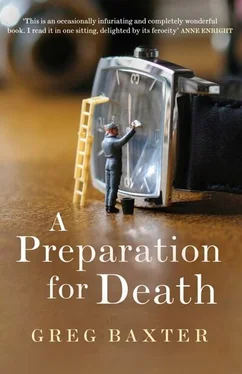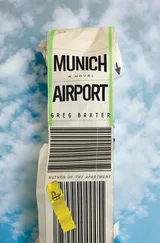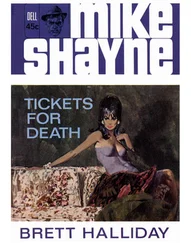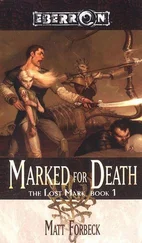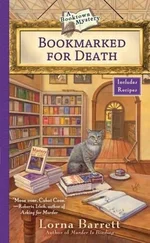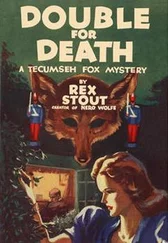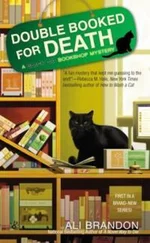We spent a few days in west Cork to mark the end of my autumn teaching schedule. The B&B we stayed in was mildewy and frigid — the owner turned the heat on for an hour a day only, in the afternoon. I got a cold, and the cold got worse in our damp shivering room. I slept in my clothes, which became damp and smelly, and a winter cap. Clare could not have gone for long walks anyway — she gets breathless quickly — but I had hoped to make a few unexpected roadside stops and wander around some hilltop, and take in the scenery, and think about having a son. Instead, I spent my mornings in a sweaty, hungover, trembling half-sleep, filled the room with snotty tissues, and took so much paracetamol that, when I finally began to feel better, I had violent indigestion and spent all Sunday and Monday — back in Dublin — lying on the floor between the toilet and the bed.
When Clare and I were leaving — it was a day earlier than we expected, because I was too sick to stay any longer — we took the Caha Pass, in the mountains between Glengarriff and Kenmare. The road goes up and up, high and narrow, and looks over a deep valley of grass and boulders. The sun was out and the sky was yellow. The light was so warm through the window that I cracked it open — and icy air filled the car. At the top of the pass, there is a tunnel cut through the mountain. It is roughly chiselled, not smooth, and the roof drips with condensation. Puddles form on the road. When we came out, and were in Kerry, the sky was black with clouds, and the distances — the valleys and mountains — were clogged with mist. The change was so sudden — the tunnel is only a hundred metres in length — that Clare and I both said whoa . A little sunlight from the Cork side of the pass was coursing through, and filled the air with rainbows. Nothing is ever striking to me for its own sake; I cannot leave well enough alone. I demand that images like this speak to a self in me that is consistent and unvariegated, when in fact it only speaks to the part of me that likes rainbows. I want this sight to wring out of me a feeling that is so big and clumsy that it is almost religious. And when I fail to find the reflection of the image in me, the understanding of myself in the image, I grow frustrated.
A man does not encounter himself by his secret natures. Instead, he lives in adulterated memories. He does not know his truth; the mirror in which he gazes upon himself is distorted, too forgiving, and contaminated with bad light. He cannot examine himself: he must first examine the mirror.
For about ten months in 1996 and 1997, I lived in Brighton. My friend Jack, from Mississippi — whom I knew from my year abroad in Germany — was living in London at the time. I was in England to continue my studies as a graduate student at the University of Sussex; he was there to get something exotic on his CV. Brighton was a bore, and I found myself in London almost every weekend. Jack and I were and are very different people. Friends used to say that, while we lived in Germany and were almost never seen separately, we resembled those drama masks: he was always smiling, I was always frowning. Yet we were in love with the same woman, we liked the same authors, and we had the same proclivity toward drink.
I was twenty-two at the time, and so was Jack. His first apartment — about five minutes from the Queensway tube stop — was something like half an attic at the top of a large building, not wide enough for me to lie down in. You could walk from the entrance to the window in four large steps. Jack is about three inches shorter than me, and could just fit on his bed, which was at the window end of the flat, if he bent his knees. But the ceiling was high, and the window overlooking the street was gigantic, and opened to a broad ledge we used to sit on to watch below.
Jack and I picked up the habit of running out on tabs and shoplifting. I stole about fifty books from Foyles bookshop on Charing Cross Road — this was when Foyles was the only bookshop in the developed world without theft detectors. The first time, I stole just one book, Ubu Rex by Alfred Jarry. The last time I must have taken five or six. I wandered through the aisles and stuffed them into the waist of my jeans, which was concealed by my coat. In Boots, I’d buy something small and pack twenty pounds’ worth of unnecessary items in my pockets. I’d wear three shirts out of department stores. In pubs, if they charged us, we paid, and if they did not, we ran out the door as fast as we could, sprinted until we couldn’t breathe, and found another pub.
One day — this was probably spring — we were sitting in Trafalgar Square, up on a plinth beside one of the large bronze lions, drinking cans of cheap beer, listening to a radical religious group tell passers-by they were going to hell. They might have told us the same thing, but we were right behind them, and we were not moving. They wanted to shout outrage at people who wished to escape their wrath, not at people who were, for whatever reason, happy enough to listen. So we drank and yawned and mocked them a bit. Then we stole two bibles from the small stage they had erected. We simply looked those people in the eyes and took the books, as if to say, Try and stop me. A man said, They’re free; take as many as you like. But we tucked them inside our coats anyway, and stepped away slowly.
This is how all our Saturdays began: a few drinks in Trafalgar Square, then a wander through the National Gallery. I can’t remember why it seemed so funny, but when I dropped my bible in the gallery, Jack said, loudly, You dropped your bible. Moments later, I knocked his out of his hands and said, You dropped your bible. Or maybe that is not how it happened. I can’t remember. But I know we began to throw our bibles at each other, across the big rooms, screaming, You dropped your bible! Security began to follow us. When Jack threw his the length of three rooms, we were escorted out. But not before Jack demanded his bible back.
That night, and many other nights, we drank wine and beer at a place called Café Apogee in Leicester Square. It was a large, three-storey restaurant that served drinks until four a.m. We ordered carafes of red wine, and made a big show of ourselves — flirting with our waitress, talking the most enormous shit to each other about art or politics. It was always loud and facetious. We used to play a game in which we argued something viciously, personally attacking each other, but when one of us cried switch , we had to change sides, and argue the opposite. When it got late, and the place began to clear out, we ordered the bill and fled. Even after a dozen escapes, some narrow, and even one capture, we were never recognized. We used to enter the place with dread in our intestines, like two trembling cowards leading each other into a dark cave. But when we were not recognized, in that instant, we unwound. Our technique was this: wait until there were other people leaving, walk quietly toward the front door, then bolt. Once, we knocked ourselves down trying to get through the doorway at the same time. We always ran in separate directions, and though we had no idea where the other was going, and had no phones, we always found each other wandering around about twenty minutes later, slightly out of breath. Once, Jack had four bottles of beer inside his coat, and running through Leicester Square, assuming he was being chased, he fell and smashed all the bottles, but was unharmed. I found him trying to hold the bottom of one shattered bottle together, so he could drink the dregs of it.
When he moved to a larger apartment in Crystal Palace, I remember lying around in total stillness, except when we were going places in a panic — always giving ourselves impossible windows to catch the train, eating toasted sandwiches while on the run to the station, which was half a mile away, sprinting with untied shoelaces. Sometimes we made it, and sat in gasping heaps on the way to Victoria Station. Sometimes we didn’t, so we drank cans on the platform and blamed each other. We used to start fist fights with each other, waiting for the last bus back from Trafalgar Square — the fastest way to do that was to knock the other’s hot dog out of his hands — or throw coins at buses, and run when the drivers came after us.
Читать дальше
